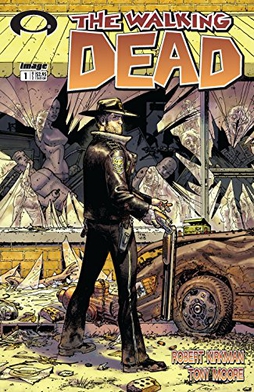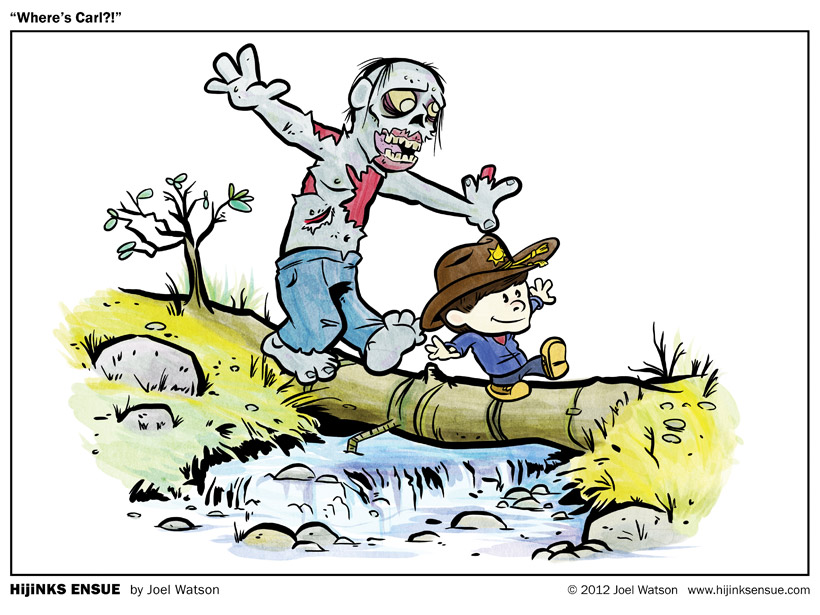I like to think back to a time about twenty years ago, before I'd even heard of Amazon.com. It was a funny time, when I used to frequent second hand bookstores, enjoying the feel of the old pages on my fingertips as the tales unfolded across the landscape of my imagination. I dreamed, way back when, of telling stories - though at the time my focus was through the medium of music, it hadn't been too long since I'd been caught up in the fantasy of having books sold across the world to people I'd never meet. In this dream, someone not so different to me was sitting in a bookstore, thumbing through the pages of my stories.
It was a nice dream.
Music relented the stage back to writing, and I resumed my quest for storytelling, seeking out the right story and the ability to tell it.
By this time, I'd heard of that Seattle company called "Amazon" that promised to deliver books right to your door. It was ludicrous, I thought. Why would you go there to find books that you can more easily find through the satisfying process of wandering the shelves and seeking out that one spine that shone out from the rest, called out to you and demanded to be taken home and devoured? How could that experience possibly be replicated on the internet?
Well, I'll be honest. It couldn't. The tactile sense of connection which only really happens in those dusty stacks of books can't really be found through a brightly beaming laptop screen or even through the touchscreen of your iPad.
But around that same time, a funny thing happened. Those wonderful, small, cozy, familiar bookstores began getting shuttered, unable to compete with the gleaming brick and mortar bookstore chains. Soon, all you had was brightly lit marketplaces, all more than happy to show you on their end caps or bold cardboard standees just what book you needed to buy next. You could avoid those, sure, but the decisions about which books stared at you and what books were even permitted to turn their spine to you were already long since made. Thumb through them all you like, the improvisational sense of discovery was quickly replaced by computer menus and a friendly vested staff who were happy to point to this section or that, and would you be paying for that by cash or credit card today?
The quest...was sterilized.
So I, on a dare, I think, returned to the computer in my home. I figured, if I'm going to have a sterilized, brightly lit and impersonal quest for books, I might as well do it in my pajamas. At least I don't need to worry about finding a good parking space.
And there it was: Amazon. I set up my account and logged in. Poked around a bit, and noticed that the searching became much more intuitive. As I made purchases, it figured out what kinds of things I liked, and even made suggestions. Sure, I know it's the same deal as in the new franchise book stores, but something about it just felt like it was becoming my own personal shopping assistant.
I placed my orders, they magically appeared on my doorstep a few days later, and that was it. I was hooked. My ferret-like need for instant validation was rewarded. I once again began devouring books. And then music. And everything else Amazon began to offer. I did my holiday and birthday shopping there, even got my stuff gift wrapped and shipped to my friends and family who didn't live near me. It was kind of perfect.
A short time later, I wrote my first book. Now, the at-that-time established process for publishing success was simple: 1) write a book; 2) get an agent; 3) get your book signed to a publisher; 4) pile all your delicious money into an empty pool and go swimming in it.
So, like a dutiful young author, I submitted query letters to agents. "Hey there, I've got a book! You should read it!" Now, I had low expectations, taught to me by the music publishing world. But I got some great responses. Some agents wanted the manuscript. Some wanted just the first few chapters. A few just thanked me for my time and wished me luck. But the most successful queries all returned the same response: "loved the book...loved the characters...loved the world..." et cetera et cetera. "...But I'm not sure how to market a 'steampunk/young adult/science fiction/fantasy' book..."
This confused me until I considered how bookstores manage their publications. See, it's all about the real estate, right? Where do the books fit on the shelf, how many books are already on that shelf, is there room? Can the book be face out? On an end cap? On a table? What section of the store will it be in? What other books are coming out at that time that this book will be competing against? These are all questions that any book following the old marketing model have to consider.
But then I learned a very interesting fact: Amazon didn't worry about those questions.
So I stopped sending out pointless queries and published directly on Amazon. It's been a few years now, and I've learned a lot - mostly through trial and error, much through expert guidance through people I trusted - and, some 45 publications later, I'm doing fairly well. When my books are ready - written, edited, re-written, designed, and formatted - they go up and are ready for consumption within hours. HOURS.
All the costs are mine, the responsibility to market and produce are mine, the fees for editing come out of my own pocket, but, also, the royalties for every copy sold are mine. I don't get many of the perks that larger publishing houses are able to wrestle from Amazon, but the way I see it, the benefits of being nimble are always going to outweigh the benefits from being unwieldy and bloated. Standard production time of a "traditionally published" novel can be years - most of which is after the book has left the author's hands. And that's fine. It's a bit understandable why the larger publishers so frequently miss the mark on trends and contemporary interests, but then again, most of them own the newspapers that print the reviews, so I'm sure that balances out for them.
But now, in light of all the craziness in the current public debates regarding Hachette and Amazon, and all of the "he said / she said" inherent to such arguments, I tried to view the entire process with an open mind. Yes, I do business with Amazon - I have my books sold on multiple platforms, but Amazon simply does better business for me, so yes, there is that potential for bias.
At the same time, the idea of "following the money" makes things pretty clear. Large publishers have built in processes that require constant influx of money. They've got their stable of artists, editors, distribution companies, paper suppliers, marketing groups, lawyers, and so forth. And with that vast army of worker bees, they have been losing money on publishing for the past 20-odd years, and are more than happy to blame the new kid on the block. But the fact is, when a book sells, the author should get paid. Period. Forget the idea of advances, let's look at truly traditional publishing. You write a book, you print the book, you sell the book, you make enough to print two books, and so on. You start small, you work your way up.
Isn't that how it should work?
So when I look at the differences between the two companies - Amazon and (Insert publishing house name here) - I ask myself this question: where is the closest connection between author and reader? Financially, it makes more sense. Creatively, it makes more sense.
But really, it's about options. The old way. The new way. There are more readers than ever before, there are also more writers than ever before. It's a big new world. And the less time we spend fighting about it, the more time we'll have to improve it.
For more blogs, head on over to www.renwritings.com.






.jpg)

